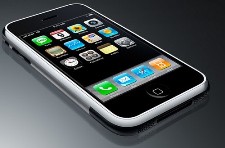Has Apple quelled smartphone buyer expectations for finished products?


I purchased my original 8GB iPhone for $599 and was pretty pleased by the slick UI and media playback functionality, but there were a ton of issues that made it less functional than most every feature phone on the market and as we later found out it wasn't really a killer device until Apple rolled out support for 3rd party apps and the App Store. As a smartphone goes, the original was more of a beta product than a full release product. Google and HTC showed us the same thing with the G1 and while I think it was a pretty amazing device at launch, there were a few key functions that were added just a couple months ago with the Cupcake update. The Palm Pre rolled out and within the first couple of days an update was released to fix some issues and add some functionality. The Nokia N97 had several performance issues (still has some due to limited RAM and processor) that were recently addressed in a firmware update. While the HTC Touch Diamond was a pretty amazing piece of super compact hardware, the firmware update that HTC provided several months after its release greatly improved the TouchFLO functionality. Have we come to expect that every high end smartphone we purchase is in "beta" until the developers or manufacturers tweak it with firmware updates?
My T-Mobile HTC Touch Pro2 may get the Windows Mobile 6.5 upgrade, but as I pointed out HTC already added in enough special sauce to give me just about everything WM 6.5 is going to add and there is not really a compelling reason to upgrade so it shouldn't make or break your purchase decision. Microsoft and the Windows Mobile team have been taking a beating over the last year regarding their super tanker slowness to maneuver and respond to the market while providing timely updates to their devices. I won't get into the details of how diverse the Windows Mobile marketplace is (form factor, carrier, specification differences) that makes it virtually impossible to provide updates across the board. However, as I look at my T-Mobile Touch Pro2, T-Mobile Dash, and various other Windows Mobile devices I have purchased over the last couple of years just about every one of them has performed well and provided me with the functionality that I knew they provided when I purchased them. I had no expectations or yearning for an update to make the device usable and enjoyable. Do the folks at Microsoft, HTC, Samsung, and others spend more time testing and working out the bugs before they ship their devices to the consumer? RIM BlackBerry devices perform much like these Windows Mobile devices and while there are some updates provided to the BlackBerry models these updates generally are tied to carrier versions of the devices and are not as needed as those we have seen on the iPhone. I know that there are some WM and BlackBerry devices that have been buggy too, but the majority have been stable and functionality has not really changed with updates.
The upgrades for the iPhone have been essential and provided functionality that was needed, but couldn't Apple just have completed the iPhone in the first place and launched it with these capabilities? Do the folks at Nokia push devices out fast to get them on the street without fully testing them out? It seems that just about every Nokia S60 device that has been released over the last couple of years has had "buggy" performance and required a firmware update just to fix bugs without any real new functionality. Can you really tell me that these smart people at Apple and Nokia were unaware of these bugs and issues when they released these devices? Can we ever again expect a full and complete device at launch when we fork over our hard-earned cash for a new smartphone or do we pay for it and bet on future updates to give us what we really paid for?